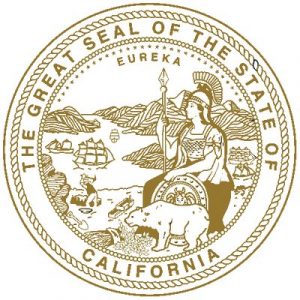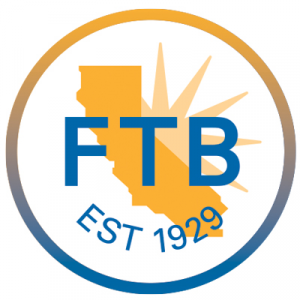![]() Pillsbury SALT was proud to present TEI/IPT Silicon Valley’s State and Local Tax Day & IPT Joint Meeting on December 5! The team presented a 3/4-day seminar that focused on topics related to the State and Local Tax implications of the Tax Cuts and Jobs Act, the U.S. Supreme Court’s decision in Wayfair, and other hot topics in state and local taxation.
Pillsbury SALT was proud to present TEI/IPT Silicon Valley’s State and Local Tax Day & IPT Joint Meeting on December 5! The team presented a 3/4-day seminar that focused on topics related to the State and Local Tax implications of the Tax Cuts and Jobs Act, the U.S. Supreme Court’s decision in Wayfair, and other hot topics in state and local taxation.
Articles Posted in California
Pillsbury SALT recognized in U.S. News – Best Lawyers 2020 Best Law Firms Rankings
 Pillsbury has earned a total of 154 national and regional practice rankings in the latest U.S. News – Best Lawyers 2020 Best Law Firms survey.
Pillsbury has earned a total of 154 national and regional practice rankings in the latest U.S. News – Best Lawyers 2020 Best Law Firms survey.
The Tax team’s rankings include:
- National, Tier 1 in Litigation – Tax and Tax Law
- Miami, Tier 1 in Tax Law
- New York City, Tier 3 in Tax Law
- San Francisco, Tier 1 in Litigation – Tax and Tax Law
To view Pillsbury’s complete list of practice rankings, click here.
The U.S. News – Best Lawyers Best Law Firms rankings are based on a rigorous evaluation process that includes the collection of client and lawyer evaluations, peer review from leading attorneys in the field, and review of additional information provided by law firms as part of the formal submission process. To be eligible for a 2020 ranking, a law firm must have at least one lawyer recognized in the 25th Edition of The Best Lawyers in America list for that particular location and specialty.
Sunny State Shade: Arizona’s Objection to California’s Tax Reach
Pillsbury SALT attorneys Carley Roberts, Robert P. Merten III and Mike Le co-authored “Sunny State Shade: Arizona’s Objection to California’s Tax Reach” in a recent edition of SeeSALT Digest, by Tax Notes State. In this article, Carley, Robert and Mike evaluate and provide an update on Arizona’s judicial objection to the reach of California’s tax imposition on out-of-state companies whose only connection to California is a passive investment interest.
To read the article, please click here.
California CDTFA Marketplace Sales Interested Parties Meeting Update
The California Department of Tax and Fee Administration held an Interested Parties Meeting to address proposed regulation 1684.5 on marketplace sales. The proposed regulation defines terms used in the Marketplace Facilitator Act (added by AB 147), explains the registration requirements for marketplace facilitators and marketplace sellers, clarifies when a marketplace facilitator is the seller and retailer, and provides election procedures for a delivery network company to be deemed a marketplace facilitator. After the comment period closes on October 30, the Department will decide whether to proceed with formal rulemaking as authorized by the Marketplace Facilitator Act. The Department also has the authority to adopt emergency regulations through June 2020, which, if adopted, will remain in effect for two years.
The Department’s discussion paper can be found here.
California Governor Vetoes Ban Against Tax Sharing Agreements and Signs New Law Requiring Certain Public Information for Disclosure
 There were two competing bills regarding tax sharing agreements (TSAs) this legislative session: SB 531 and SB 485. The former would have barred all TSAs at the local level as of January 1, 2020. The latter would not bar TSAs but instead would require the locality to report certain information pertaining to the agreement that would be made publicly available. On October 12, 2019, Gov. Gavin Newsom vetoed the bill that would have barred TSAs altogether and instead signed the other bill that requires publicly reporting certain information pertaining to the TSAs.
There were two competing bills regarding tax sharing agreements (TSAs) this legislative session: SB 531 and SB 485. The former would have barred all TSAs at the local level as of January 1, 2020. The latter would not bar TSAs but instead would require the locality to report certain information pertaining to the agreement that would be made publicly available. On October 12, 2019, Gov. Gavin Newsom vetoed the bill that would have barred TSAs altogether and instead signed the other bill that requires publicly reporting certain information pertaining to the TSAs.
The California Franchise Tax Board Convenes a Public Meeting on the Gig Economy
 Yesterday, the California Franchise Tax Board convened a public meeting to discuss tax compliance within the growing gig economy and the challenges of meeting these obligations. Speakers from academia, the FTB, the business community, and gig workers themselves, discussed various tax issues, three of which stood out.
Yesterday, the California Franchise Tax Board convened a public meeting to discuss tax compliance within the growing gig economy and the challenges of meeting these obligations. Speakers from academia, the FTB, the business community, and gig workers themselves, discussed various tax issues, three of which stood out.
COST’s Property Tax Workshop 2019 (Las Vegas)
On Sept. 30-Oct. 2, members of Pillsbury SALT will lead discussions at COST’s property tax workshop in Las Vegas. This event aims to bring multistate property tax professionals together and discuss timely legislative and litigation updates, trends and opportunities to make sure your business’s property is not over taxed.
Topics will include:
- “Central or Local Assessment? Why It Matters and How to Take Advantage of Either Process,” (Breann Robowski)
- “California – A Property Tax Nation unto Itself” (Craig Becker)
- “Best Practices for Getting Fair High-Tech Property Valuations.” (Breann Robowski)
- “Ask the Experts – Practitioners Addressing Issues for Free” (Craig Becker)
For more information and to register, please visit the event page.
California OTA Rejects FTB’s 0.2 Percent Bright-Line Nexus Standard for Out-Of-State Minority Interest LLC Members
 The California Office of Tax Appeals (OTA)—in a 3-0 pending precedential opinion granting the Appeal of Jali, LLC—has rejected the Franchise Tax Board’s (FTB) 0.2 percent ownership threshold as the new bright-line standard for determining whether an out-of-state LLC member is actively “doing business” (and thereby required to file and pay tax) in California. The FTB relied upon Swart Enterprises, Inc. v. Franchise Tax Bd. (2017) 7 Cal.App.5th 497 (Swart) to deem Jali as actively doing business in California because its membership interest in an in-state LLC ranged between 1.12 to 4.75 percent, which “was well beyond the 0.2% Swart limit.” However, the OTA determined the FTB misconstrued Swart and found Swart was “squarely grounded on the relationship between the out-of-state member and the in-state LLC” and not simply based on ownership percentage. The OTA then evaluated Jali’s facts and found no evidence it had “any ability or authority, directly or indirectly, to influence or participate in the management or operation” of the LLC that conducted business in California.
The California Office of Tax Appeals (OTA)—in a 3-0 pending precedential opinion granting the Appeal of Jali, LLC—has rejected the Franchise Tax Board’s (FTB) 0.2 percent ownership threshold as the new bright-line standard for determining whether an out-of-state LLC member is actively “doing business” (and thereby required to file and pay tax) in California. The FTB relied upon Swart Enterprises, Inc. v. Franchise Tax Bd. (2017) 7 Cal.App.5th 497 (Swart) to deem Jali as actively doing business in California because its membership interest in an in-state LLC ranged between 1.12 to 4.75 percent, which “was well beyond the 0.2% Swart limit.” However, the OTA determined the FTB misconstrued Swart and found Swart was “squarely grounded on the relationship between the out-of-state member and the in-state LLC” and not simply based on ownership percentage. The OTA then evaluated Jali’s facts and found no evidence it had “any ability or authority, directly or indirectly, to influence or participate in the management or operation” of the LLC that conducted business in California.
California Appellate Court Holds Abercrombie Sought to Create Rather than Eliminate Discriminatory Tax Reporting Treatment
 The Fifth Appellate District of the California Court of Appeal has struck another blow to taxpayers claiming California unconstitutionally discriminates against interstate commerce by permitting intrastate unitary businesses to file using either a combined reporting method or separate accounting method, while requiring interstate unitary businesses to file under the combined reporting method.
The Fifth Appellate District of the California Court of Appeal has struck another blow to taxpayers claiming California unconstitutionally discriminates against interstate commerce by permitting intrastate unitary businesses to file using either a combined reporting method or separate accounting method, while requiring interstate unitary businesses to file under the combined reporting method.
California Prop C Taxpayers Should File Protective Refund Claims
(This article originally was published by Law360 on August 21, 2019.)
The repercussions of the California Supreme Court’s August 2017 opinion in California Cannabis Coalition, et al. v. City of Upland, et al.1 continue to reverberate, leading San Francisco’s business taxpayers to wonder what practical precautions to consider.
In a February article, we analyzed the Upland opinion, the over 40-year history of California’s two-thirds supermajority voting requirement for passing local special taxes, and an introduction to the first five post-Upland litigation challenges, including San Francisco actions involving the validity of two separate Proposition C voter initiatives that passed in 2018 with a majority but not a supermajority vote. In a follow-up article last month, we provided an update on the status of these five supermajority tax challenges pending around the state, including trial court decisions made in the two San Francisco Proposition C actions.
 SeeSALT Blog
SeeSALT Blog

